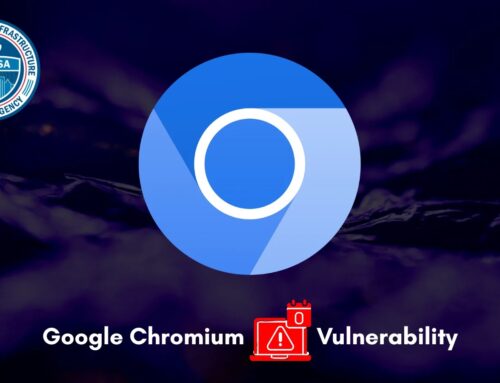
CredShields Joins Forces with Checkmarx to Bring Smart Contract Security to Enterprise AppSec Programs
The convergence of traditional enterprise application security (AppSec) and the burgeoning world of Web3 presents unique challenges and opportunities. Smart contracts, the bedrock of decentralized applications (dApps), manage significant digital assets and execute critical logic, yet their inherent immutability and public ledger exposure make them prime targets for sophisticated attacks. Securing these innovative digital agreements is no longer a niche concern; it’s a foundational imperative for any organization venturing into decentralized ecosystems.
This evolving landscape demands a new breed of security solutions, blending established AppSec rigor with specialized blockchain expertise. The recent announcement of CredShields joining forces with Checkmarx signals a significant advancement in this critical area, promising to integrate robust smart contract security directly into enterprise AppSec programs.
Bridging Traditional AppSec with Web3 Security Expertise
For years, organizations have invested heavily in securing their centralized applications, establishing mature AppSec pipelines with tools for static application security testing (SAST), dynamic application security testing (DAST), and software composition analysis (SCA). However, the architectural and developmental paradigms of Web3 introduce distinct security considerations that traditional AppSec tools often struggle to address effectively.
The collaboration between CredShields and Checkmarx directly tackles this gap. Checkmarx, a leader in agentic AI-powered application security testing, brings its extensive experience in identifying vulnerabilities across diverse software stacks. CredShields, a prominent Web3 security firm, contributes its deep specialization in smart contract audits, vulnerability research specific to blockchain protocols, and expertise in the unique attack vectors prevalent in decentralized systems. This partnership aims to create a unified security approach that covers both ends of the spectrum.
The Power of AI-Driven Smart Contract Audits
Manual smart contract auditing, while crucial, can be resource-intensive and prone to human error, especially as contract complexity grows. The integration of AI into this process, as highlighted by the partnership, promises to enhance efficiency and accuracy. AI-driven tools can analyze vast amounts of code, identify common patterns of vulnerabilities, and flag potential exploits more rapidly than human auditors alone.
Consider a scenario where a reentrancy vulnerability, famously exploited in the DAO hack (though not assigned a CVE due to its nature as a design flaw, it illustrates a class of vulnerabilities), could be identified more systematically by an AI engine trained on numerous vulnerable smart contracts. While AI cannot replace the nuanced understanding of a human auditor, it can significantly augment their capabilities, allowing them to focus on more complex, business-logic-related vulnerabilities.
Enhancing Enterprise Application Security Programs for Decentralized Ecosystems
The goal of this collaboration is not merely to offer a standalone smart contract auditing service but to embed Web3 security considerations directly into existing enterprise AppSec programs. This means:
- Unified Vulnerability Management: Enterprises will potentially gain a consolidated view of security risks across both their traditional and decentralized applications.
- Automated Security Checks in CI/CD: Integrating smart contract scanning and analysis into continuous integration/continuous deployment (CI/CD) pipelines, enabling developers to identify and remediate vulnerabilities early in the development lifecycle.
- Proactive Threat Research: Leveraging CredShields’ Web3 expertise for ongoing vulnerability research specific to blockchain platforms and smart contract languages, feeding this intelligence back into Checkmarx’s AppSec offerings.
This approach moves beyond reactive auditing to proactive security by design, crucial for protecting the integrity of Web3 applications that often handle irreversible transactions and significant digital assets.
Remediation Actions for Smart Contract Security
Securing smart contracts requires a multi-pronged approach. Even with advanced tools, developers and security teams must adhere to best practices:
- Thorough Code Audits: Engage reputable security firms for comprehensive manual and automated audits before deployment.
- Formal Verification: Employ mathematical proofs to ensure the contract behaves exactly as intended, eliminating logical flaws.
- Adherence to Secure Coding Standards: Follow established guidelines for writing secure smart contracts, such as those provided by ConsenSys or OpenZeppelin.
- Bug Bounty Programs: Implement bug bounty programs to incentivize white-hat hackers to find and report vulnerabilities before malicious actors do.
- Test-Driven Development (TDD): Write extensive unit and integration tests to cover all possible execution paths and edge cases.
- Upgradeability Mechanisms: Design contracts with upgradeability in mind (where appropriate and safe) to allow for patching discovered vulnerabilities.
- Continuous Monitoring: Implement monitoring solutions to detect anomalous behavior post-deployment.
The Future of Secure Decentralization
The strategic alliance between CredShields and Checkmarx marks a pivotal moment for enterprise security in the decentralized economy. By harmonizing traditional AppSec methodologies with cutting-edge Web3 security specialization and AI-driven tools, organizations can navigate the complexities of blockchain development with greater confidence. This initiative not only enhances the security posture of individual projects but also contributes to the overall maturity and trustworthiness of the Web3 ecosystem.
As decentralized applications continue to gain traction, the need for robust, integrated security solutions will only intensify. Partnerships like this pave the way for a more secure and resilient future for smart contracts and the digital assets they govern.





